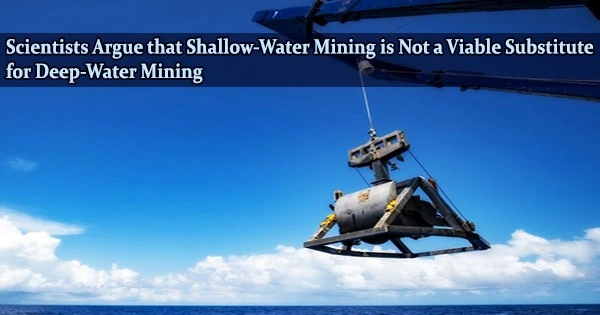Although projects have been planned for Mexico, New Zealand, and Sweden as well as shallow-water mining operations in Namibia and Indonesia, their consequences have not yet been adequately analyzed.
Shallow-water mining needs to undergo a more thorough environmental assessment before it can be deemed safe and sustainable, according to researchers who published their findings on September 13 in the journal Trends in Ecology and Evolution.
The authors question the claim that mining, which occurs at depths of less than 200 meters, is less harmful than mining on land and less dangerous than mining in poorly studied deep-water habitats.
“Claims of reduced environmental impacts of shallow-water mining are not backed by credible evaluations but by hopes and assumptions that support a pro-mining narrative,” write the authors.
Large volumes of silt must be dredged in order to extract valuable elements like gold, cobalt, copper, and phosphorites from the shallow ocean floor. The organisms that live in this silt, which takes thousands of years to build up, must also be removed.
The authors caution that this removal of habitat and inhabitants will result in biodiversity loss.
“In the absence of impartial comparisons of the ecological effects of different types of mining practices, there are no environmental or socioeconomic justifications in favor of shallow-water mining,” write the authors.





